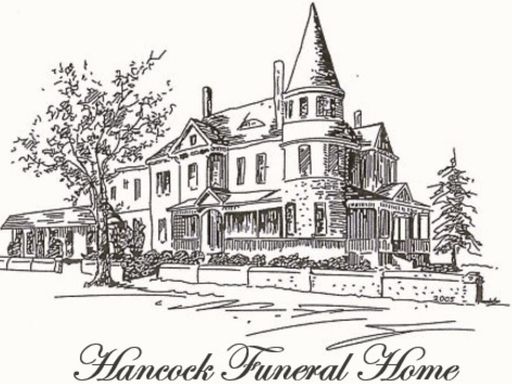

1916
Henry
2009
Dr. Henry King Stanford
April 22, 1916 — January 1, 2009
Dr. Henry King Stanford, age 92, passed away on January 1, 2009, in Sumter Regional Hospital. Memorial services will be conducted at 10:00 a.m. on Saturday, January 24, in the First United Methodist Church of Americus, with Rev. Bill Dupree and Rev. James Smith officiating. Other speakers will include Dr. Henry Teaford of Americus, Dr. William R. Butler from the University of Miami, Mr. Thomas S. Landrum, Dr. Charles B. Knapp, and Dr. Michael F. Adams, all representing the University of Georgia. A renowned educator, Dr. Stanford served as president at Georgia Southwestern College, Georgia State College for Women, Birmingham-Southern College, the University of Miami, and the University of Georgia. The family will receive friends at Hancock Funeral Home from 7:00 until 9:00 p.m. on Friday, January 23. Friends will also have an opportunity to visit with the family in the church fellowship hall following the memorial service. Memorial contributions may be made to the donor’s choice of the following: Georgia Southwestern Foundation, P.O. Box 926, Americus, GA 31709, Please mark your donation, Henry King Stanford Scholarship. Georgia College and State University, c/o Dr. Bob Wilson, Dept. of History, Box 047, Millegeville, GA 31061 Birmingham Southern College - Birmingham, AL University of Miami (P.O. Box 248073 - Coral Gables, FL 33124) University of Georgia - Athens, GA League of the Good Samaritan (c/o Magnolia Manor, 2001 S. Lee St., Americus, GA 31709) Hancock Funeral Home, 427 South Lee Street, Americus, GA, is in charge of the arrangements. As quoted from the Americus Times Recorder: A man can be judged by the life he lives, by how he influences others and how he affects history, the legacy he leaves. When Henry King Stanford, Ph.D., 92, died at Sumter Regional Hospital East Thursday, he left his mark on not only his community, but many others around the world. No one who has ever had the pleasure of meeting Stanford could ever forget him. Known for his sharp dressing, his consummate wit, keen intellect and stories, Stanford could converse effortlessly with most anyone. He had the special ability to make others feel comfortable. After 30 years of serving others, as president of three colleges and a major university, Stanford and his wife retired to Americus in 1981. Stanford was president of the University of Miami from 1962 to 1981. He also had been president of GSW (now Georgia Southwestern State University) in Americus (1948-50), Georgia State College for Women (now Georgia College and State University)in Milledgeville (1953-56) and Birmingham Southern College in Alabama (1957-62). Stanford had retired in 1981, after leading the University of Miami through 19 years of growth that included a four-fold increase in the budget, creating of 63 graduate programs, a jump of nearly $35 million in federally sponsored programs and a ranking as one of the country's 50 top research institutions. Americus was so very proud of its "Top Dawg" when Stanford came out of retirement, at age 70, in April 1986, to lead the University of Georgia (UGA) as interim president while a search was conducted for a permanent president. Stanford went to UGA in July 1986 after Fred C. Davison resigned as president, and served until July 1987 when Charles B. Knapp became UGA's 20th president. UGA may have claimed him for a short while, but people in Americus knew he really belonged to the local community, even being the world citizen that he was. He rode a Greyhound bus to Athens because his car was in the shop for repair and his wife had the other one so she could drive to her beauty parlor appointment! That's just the way he was. As intellectual and worldly as he was, he also had that "regular guy" touch. "Henry King Stanford is a real hero of Georgia history," said UGA President Michael F. Adams. "Though his decades of public service and leadership included only a short time at the University of Georgia, his impact on the institution was substantial. He steered UGA through tumultuous waters, refocused the institution on its core mission, and prepared it for much of the progress made in the years since he was president." Proclaiming himself a "self-appointed evangelist who, like St. Paul, fetched the gospel from Athens to Rome (Ga.)," Stanford spent much of his year at UGA traveling around the state boasting about UGA's research activities, library collections and Honors Program, and urging audiences to support the university. He quickly became a familiar figure around campus, attending student, faculty and alumni functions and speaking to any organization that invited him. He surprised students and faculty by stopping them on the sidewalk to get their opinion on how things were going. Once, as onlookers held their breath, he climbed aboard a bulldozer and scooped up a bit of dirt to break ground for a new building. He made 181 speeches during the year, including an appearance before a joint session of the Georgia House and Senate. He even carried his message into Georgia's Sanford Stadium, working the crowds in the stands during football games. Stanford later told a reporter he had "never felt so needed and appreciated" and that the year at UGA was a highlight of his career. Ruth Stanford said she often told her husband "you had such a good time in Athens you should have paid them for letting you come." While his service was chiefly building good will, Stanford did not shirk other serious duties. On his first day in office he replaced the vice president for academic affairs and an associate who had been key figures in the athletics court case. He appointed Louise McBee, a respected veteran administrator, as acting vice president, a position she would continue to hold for a year under Knapp. later, he appointed two African-American professors as the first minority members of the board of the UGA Athletic Association. Asked in later years why he left a comfortable retirement to take the stressful UGA assignment, Stanford replied that he initially accepted because of "flat out ego," flattered that the regents thought he could do the job. That reaction, he said, was quickly followed by a feeling of obligation to provide helpful service to the state if he could. In July 1987, Stanford and his wife returned to Americus, but Stanford's service to UGA wasn't finished. Knapp asked him to head a faculty committee charged with developing an environmental education program for UGA and he periodically returned to campus for committee activities. That same year, the Board of Regents bestowed the title of President Emeritus on Stanford, and in 1992 his official portrait was added to the collection of portraits of other former UGA presidents. He enjoyed popularity in most of his presidential posts. When he announced he was leaving Birmingham Souther, students staged a protest. The University of Miami honored him on his retirement by naming its residential college and a campus street for him. The University of Georgia established the Henry King and Ruth Stanford Honors Program Scholarships. There are Henry King Stanford scholarships at Miami and Georgia Southwestern, as well. Stanford and his wife, who died in 2002, were inveterate travelers who made numerous trips to Europe, South America, Africa and Asia. In 1987, they celebrated their 50th anniversary, delayed a year by their UGA assignment, by taking a hot air balloon ride over French vineyards. A lifelong fitness enthusiast who enjoyed tennis, hiking and gardening, Stanford usually walked several miles daily even after retirement. In 1988, at age 72, he climbed 17.500 feet up the east face of Mt. Everest as part of an expedition organized by a UGA student. McBee, who had retired and was 64, also made the trip, and at the time, they were the oldest Western man and woman ever to ascend that high up the world's tallest mountain. Stanford was born in Atlanta, April 22, 1916. He earned a bachelor's degree in German from Emory University, and after studying for a year at the University of Heidelberg in Germany he re-entered Emory and earned a master's degree in international relations. He earned another master's in government management from the University of Denver, where he also was director of the School of Public Administration. While serving as president of Georgia Southwestern he received a doctorate in political science and government administration from New York University. He worked two years as director of the University Center in Georgia and a year as assistant chancellor of the University System of Georgia before becoming president of Georgia State College for Women in 1953. In 1956, he went to the University of Ankara in Turkey to direct a technical assistance program for New York University. He returned to the U.S. to become president of Birmingham Southern. Stanford also held teaching positions at Emory Junior College in Valdosta, Emory University and Georgia Tech. Stanford served as president of the Southern Association of Colleges and Schools and vice president of the International Association of University Presidents. He was a founding member and director of the National Association of Independent Colleges and Universities, and was president of the Caribbean Resources Development Foundation. He was on the board of trustees of the Knight Foundation and the board of visitors of Air University, and served on several corporate boards. He was awarded 13 honorary degrees and received numerous awards including the Eleanor Roosevelt Israel Humanitarian Award; the "Star of Africa" medal, presented by the president of Liberia; the Officer's Cross of the Order of Merit of the Federal Republic of Germany; and the Distinguished Service Award from the Florida Association of Colleges and Universities. He received the Brotherhood Award from both the Florida and Georgia regions of the National Conference of Christians and Jews, and also received awards from the Anti-Defamation League in both Birmingham and Miami. Stanford is survived by four children: Henry Stanford, Jr., Lowry Stanford, Rhoda Stanford McCabe, and Peyton Stanford, and a sister, Annabell Nickel.
To order memorial trees or send flowers to the family in memory of Dr. Henry King Stanford, please visit our flower store.
Guestbook
This site is protected by reCAPTCHA and the
Google Privacy Policy and Terms of Service apply.
Service map data © OpenStreetMap contributors



